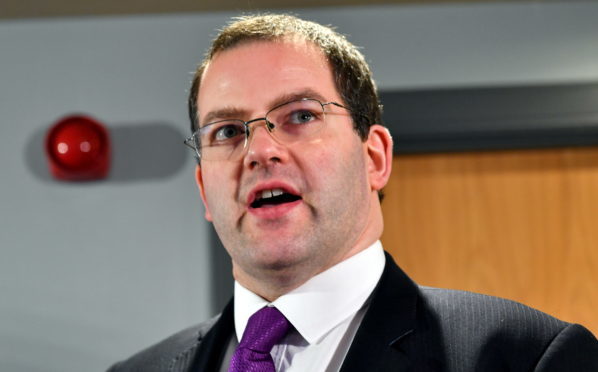A Holyrood committee has warned of “difficulties” in bringing in recall powers to give voters the final say on the future of MSPs who sexually harass staff.
The group said using new powers to establish a Westminster-style model, where a by-election can be triggered in the constituency of an offending politician, raises “a number of additional complications”.
The Scottish Parliament’s standards, procedures and public appointments (SPPA) committee also warned of “very significant” consequences for MSPs if they were to be automatically suspended pending an investigation.
However, it said that MSPs would have the chance to debate both options.
The committee launched the inquiry amid uproar at a series of high profile sexual harassment cases across the world at the end of last year, including the resignation from the government of Aberdeen Donside MSP Mark McDonald, who apologised for his conduct towards two women.
Publishing its initial recommendations on preventing, reporting and investigating reports of sexual harassment in the parliament yesterday, the committee called for a new central policy to apply to all Holyrood workers.
It also suggested ongoing monitoring of work to reduce harassment, efforts to promote the reporting of harassment, including complaint numbers and outcomes, as well as mandatory training.
The action follows a survey of 1,039 staff, published in January, which showed a fifth of parliament staff had experienced harassment.
The committee did not make recommendations on whether to establish an independent investigatory body with powers to sanction elected members, or whether to introduce a process for dismissal for gross misconduct, a new process for suspending MSPs, or changes to their code of conduct.
Under Westminster’s recall system, a successful petition can trigger a by-election in an MP’s seat in some circumstances.
But the SPPA committee said that while it “may be worth exploring the process of recall in general”, such a move would be “at odds with the parliament’s desire to demonstrate leadership on the issue”.
It expressed concerns that it “would place a sensitive issue into the hands of an electoral contest”, potentially causing “further trauma for the victim”, not to mention the “complicating factor in devising a system” to cover regional, constituency and independent MSPs.
Committee convener Clare Haughey said: “Our report explores some of the weaknesses and shortcomings we have identified with current arrangements and proposes solutions which will need to be developed in detail by the relevant parties working together.”
